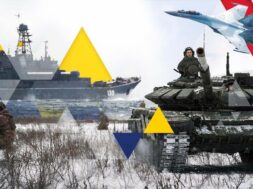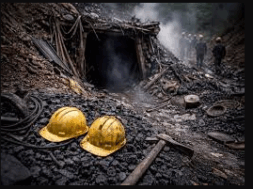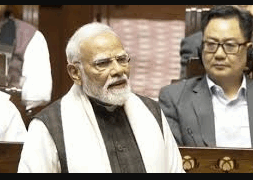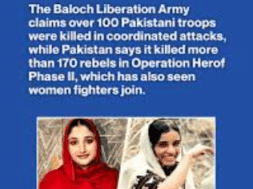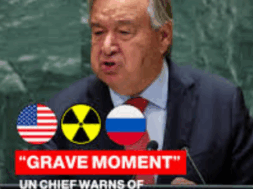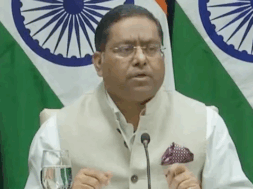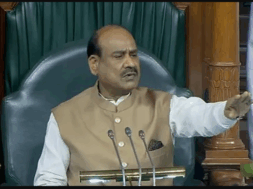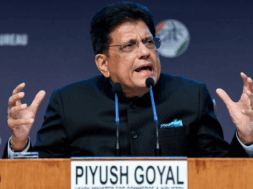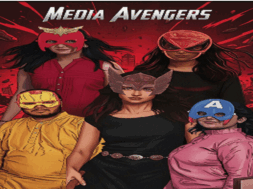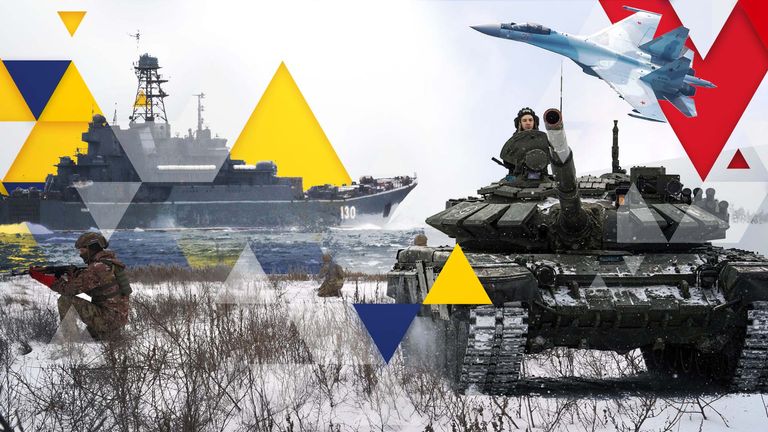
Ukraine: Russia Appreciates India’s Stand as US Calls it “Russian Invasion”
Manas Dasgupta
NEW DELHI, Feb 23: Even as the United States joined the 27 European countries in imposing stringent economic sanctions on Russia after it decided to recognise “independence” of two rebel regions that president Joe Biden termed as “beginning of a Russian invasion of Ukraine,” Russia on Wednesday welcomed India’s “independent position” on the Ukraine crisis and said its views on the issue at the UN Security Council was “reflective of the special and privileged strategic partnership between the two countries.”
Russian Deputy Chief of Mission Roman Babushkin said India had been playing a vital role as a responsible global power and it takes an “independent and balanced” approach to global affairs.
“We welcome the independent position of India which it took twice at the UN Security Council,” he said at an online media briefing. “The Indian activities at the UN Security Council are fully reflecting the merit of our special and privileged strategic partnership,” he added.
The U.S. President ordered heavy US financial sanctions against Russian banks and oligarchs stepping up the West’s confrontation with Moscow, even as Russian lawmakers authorised Putin to use military force outside their country, effectively meaning deployment of troops in Ukraine.
Biden, in a brief address from the White House, accused Putin of flagrantly violating international law in what he called the “beginning of a Russian invasion of Ukraine,” and promised that more sanctions would be coming if Putin proceeds further. “None of us will be fooled” by Putin’s claims about Ukraine,” Biden said.
Even as Russia denied any design to launch a war and the president Vladimir Putin said his country was always interested in diplomatic solutions to the Ukrainian crisis, Russian official media on Wednesday reported that Russia has started evacuating personnel from its diplomatic facilities in Ukraine. Moscow has an embassy in Ukraine’s Kyiv and consulates in Kharkiv Odesa and Lviv. The report stated the embassy in Kyiv confirmed that the evacuations have begun.
The Ukraine Parliament on Wednesday voted to approve in the first reading a draft law which gives permission to Ukrainians to carry firearms and act in self-defence. “The adoption of this law is fully in the interests of the state and society,” the authors of the law said in a note and added that the law was needed due to “existing threats and dangers for the citizens of Ukraine,” media reports said.
Satellite images showed a new deployment of more than 100 military vehicles and dozens of troop tents in southern Belarus near the Ukraine border. The images also showed a new field hospital has been added to a military garrison in western Russia close to the border with Ukraine.
Earlier in the day, Russian President Vladimir Putin said his country was always open to diplomacy. However, it puts its own national security interests first and would continue strengthening its military in the wake of “a difficult international situation”, Putin added. “Our country is always open to a direct and honest dialogue and ready to search for diplomatic solutions to the most complicated issues, but I want to repeat that Russia’s interests and the security of our people are unconditional. So, we will continue to strengthen and modernise our army and navy.”
As the European countries are preparing to announce economic sanctions against Russia, Pope Francis on Wednesday said the threat of war in Ukraine had caused “great pain in my heart” and urged politicians to make a serious examination of conscience before God about their actions. Speaking in a sombre tone at the end of his weekly general audience, Francis urged leaders to abstain from any moves that would cause further suffering for people and proclaimed Ash Wednesday, March 2, as an international day of fasting and prayer for peace.
Australia has announced additional sanctions on Russia and is warning businesses to prepare for retaliation through Russian cyberattacks. Prime Minister Scott Morrison said on Wednesday that targeted financial sanctions and travel bans would be the first batch of measures in response to Russian aggression towards Ukraine. Australia and Russia have imposed sanctions on each other since 2014. The sanctions were initiated by Australia in protest of Russian involvement in the Ukraine conflict. The National Security Committee in Morrison’s Cabinet approved sanctions and travel bans that target eight members of the Russian Security Council. They also agreed to expand previous sanctions and to align with the United States and Britain by targeting two Russian banks.
Technically, war has been going on in the eastern Ukrainian region of Donbas between Ukraine forces and Russian-backed separatists since 2014. Around 14,000 people have been killed so far in the conflict. An additional 1.4 million Ukrainians have been internally displaced.
The White House had earlier been reluctant to use the term “invasion” but has now shifted its position. “We think this is, yes, the beginning of an invasion, Russia’s latest invasion into Ukraine,” Jon Finer, principal deputy national security adviser, said. “An invasion is an invasion and that is what is underway.” The EU and the UK, meanwhile, weighed in on what Putin’s decision means.
As the 27 European Union members who unanimously agreed on Tuesday to levy their own initial set of sanctions targeting Russian officials over their actions in Ukraine, Germany announced it was halting the process of certifying the Nord Stream 2 gas pipeline from Russia — a lucrative deal long sought by Moscow but criticised by the US for increasing Europe’s reliance on Russian energy.
Biden said he was also moving additional US troops to the Baltic states on NATO’s eastern flank bordering Russia. The prime minster of Estonia and presidents of Latvia and Lithuania on Friday had made a direct plea to Vice President Kamala Harris for the US to step up its presence in the Baltics. Biden said the U.S. would impose “full blocking” on two large Russian financial institutions and “comprehensive sanctions” on Russian debt.
“That means we’ve cut off Russia’s government from Western finance,” Biden said. “It can no longer raise money from the West and cannot trade in its new debt on our markets or European markets either.”
The President announced what he called a first tranche of sanctions as Russian troops rolled into rebel-held areas in eastern Ukraine after Putin said he was recognising the areas’ independence on Monday. It was unclear how large the Russian deployment was, and Ukraine and its Western allies have long said Russian troops were already fighting in the region, allegations that Moscow always denied.
Putin has laid out three conditions to end the crisis. He said the crisis could be resolved if Kyiv recognised Russia’s sovereignty over Crimea, the Black Sea peninsula that Moscow annexed from Ukraine in 2014, renounces its bid to join NATO and partially demilitarises. The West has decried the annexation of Crimea as a violation of international law and has previously flatly rejected permanently barring Ukraine from NATO. Asked whether he has sent any Russian troops into Ukraine and how far they could go, Putin responded: “I haven’t said the troops will go there right now.” He added that “it’s impossible to forecast a specific pattern of action –- it will depend on a concrete situation as it takes shape on the ground.”
The European Union soon followed, with a first set of sanctions aimed at the 351 Russian lawmakers who voted for recognising separatist regions in Ukraine, as well as 27 other Russian officials and institutions from the defence and banking world. They also sought to limit Moscow’s access to EU capital and financial markets.
Biden said he was authorising the redeployment of some U.S. troops who are already stationed in Europe to bolster the security of NATO’s Baltic allies and claimed “These are totally defensive moves on our part” and the U.S. has no intention of deploying its forces in non-NATO-member Ukraine. But Biden also said the U.S. and its allies “will defend every inch of NATO territory and abide by the commitments we made to NATO.” The organisation’s mutual-defence pact considers an attack on one member to be an attack against all.
For weeks, Western powers have been bracing as Russia massed an estimated 150,000 troops on three sides of neighbouring Ukraine. Western leaders have long warned Moscow would look for cover to invade — and just such a pretext appeared to come on Monday when Putin recognised as independent two separatist regions in eastern Ukraine, where government troops have fought Russia-backed rebels. The Kremlin then raised the stakes further on Tuesday by saying that recognition extends even to the large parts now held by Ukrainian forces.
Putin said Russia has recognised the rebel regions’ independence in the borders that existed when they declared their independence in 2014 — broad territories that extend far beyond the areas now under separatist control and that include the major Azov Sea port of Mariupol. He added, however, that the rebels should eventually negotiate with Ukraine. Russian diplomats claimed that the leaders of the rebel regions did officially sought Russia’s help for freedom from Ukraine.
Condemnation from around the world was quick. Ukrainian President Volodymyr Zelenskyy said he would consider breaking diplomatic ties with Russia and Kyiv recalled its ambassador in Moscow. But confusion over what exactly was happening threatened to hobble a Western response. While Washington clearly called it an invasion, most others waited.
Putin pushes further into Ukraine, NATO chief Jens Stoltenberg insisted the West would move in lockstep. “If Russia decides once again to use force against Ukraine, there will be even stronger sanctions, even a higher price to pay,” he said. The British Prime Minister Boris Johnson said the U.K. would slap sanctions on five Russian banks and three wealthy individuals. He warned a full-scale offensive would bring “further powerful sanctions.”
Russia has long denied it has any plans to invade Ukraine, instead blaming the U.S. and its allies for the crisis and describing Ukraine’s bid to join NATO as an existential challenge to Russia. Putin reiterated those accusations in an hour-long televised speech on Monday, when he announced that Russia would recognise the rebels. “Ukraine’s membership in NATO poses a direct threat to Russia’s security,” he had said.
